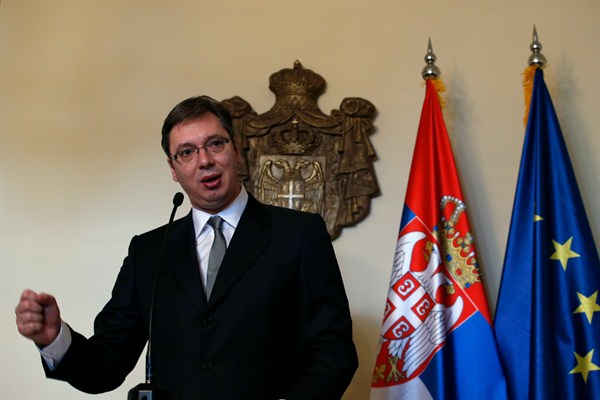BELGRADE, Serbia—Growing fears about the unmooring of the Western Balkans from its European path; the prime minster himself warning that the region remains a powder keg; concerns over malign Kremlin influence and gains made by pro-Russian hard-right parties; allegations of rising authoritarianism and corruption in government circles; and claims of double-dealing among a fragmented and fractious opposition. This is the atmosphere in which Serbia’s parliamentary election this Sunday, April 24, is taking place.
The ruling pro-European Union Serbian Progressive Party (SNS) looks assured of topping the poll, the third Serbia has had in four years. The snap election was called two years early by SNS leader and current Prime Minister Aleksandar Vucic, despite the party’s commanding majority in parliament. Vucic called the early election ostensibly to ensure a firm mandate for a 4-year program of reform needed to secure European Union membership and transform the Serbian economy, one of Europe’s poorest. The vote was also intended to marginalize both pro-Russian elements and the remnants of parties in power between 2000 and 2012, which the SNS accuses of bringing Serbia close to the brink of ruin. But the election may in fact embolden both.
Vucic, once an ultranationalist and a close ally of strongman Slobodan Milosevic, has played a leading role in regional rapprochement and championed EU membership. First as deputy prime minister and then as prime minister, he was instrumental in the 2013 Brussels agreement and a further deal in 2015 to normalize relations with Kosovo, which broke away from Serbia in a 1998-1999 war and unilaterally declared independence in 2008. While Belgrade still refuses to recognize Kosovo, the deals have helped Serbia win candidate status for EU membership and start negotiations with Brussels. Vucic has also built bridges with Bosnia, with which Serbia has a troubled relationship.

